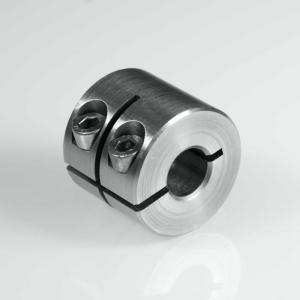- XOur Products
- Klemmringe
- Stellringe
- Sonderdrehteile
- zurück
Rigid shaft couplings are an important component in many applications that require precise transmission of torque and speed. They are typically used in applications where there should be no vibration or movement between the two shafts. Unlike flexible shaft couplings, rigid shaft couplings do not offer flexibility but provide high rigidity and stability.
Rigid shaft couplings are made from materials such as steel, stainless steel and aluminum.
The installation of rigid shaft couplings is relatively simple and does not require any special knowledge or skills. Couplings are usually attached with bolts or hubs and are quick and easy to install. Rigid shaft couplings have no moving parts, so they are easy to maintain and only require occasional inspection for wear and damage.
Some of the main technical characteristics of rigid shaft couplings are:
We offer:















 Phone: +49-(0)2689-6006
Phone: +49-(0)2689-6006 Fax: +49-(0)2689-5598
Fax: +49-(0)2689-5598 info@maschinenelemente.com
info@maschinenelemente.com


